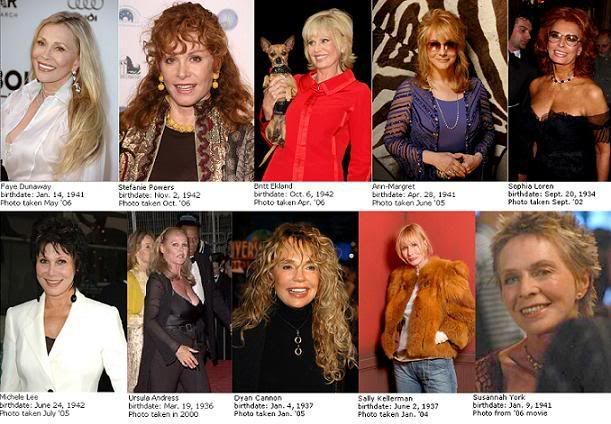BubbliciousLady
New member
When some women lose sexual desire as they age, it's probably not due to menopause and the hormonal changes that come with it as the conventional wisdom has long held. Instead, it's more likely a negative reaction to their own body image.
That's the word from Penn State University associate professor Patricia Barthalow Koch, who surveyed 307 mostly white, heterosexual women ages 35 to 55 to find out what makes a woman's sexual desire wane as she grows older. The finding was surprising. The blame lies not with biology but rather American culture--specifically, a culture focused on being young and thin. Not living up to this ideal has a more important influence on sexual functioning and satisfaction than the physical mayhem caused by menopause.
Two conclusions jump out:
1. Regardless of the woman's specific age, she was more likely to consider herself more attractive when she was 10 years younger whether or not she had been through menopause.
2. There was no significant statistical relationship between a woman's perception of her own attractiveness as she aged and her current sexual satisfaction.
The more a woman perceived herself as less attractive, the more likely she was to report a decline in sexual desire or activity over the past 10 years, the Penn State team found. Two-thirds of the women reported one or more changes in their sexual response, most frequently desiring sex less and engaging in sex less often, although some women reported improved sexual response. Nearly 21 percent of the women could not think of even one attractive feature and reported an overall sense of dissatisfaction with their bodies. The women especially disliked their stomachs or abdomens, hips, thighs and legs.
Yet, despite these changes in desire and activity, the women reported that when they did have sex, there was a high level of enjoyment. Among the women in the study, 72 percent reported being physically and emotionally satisfied in their sexual relationship and 71 percent reported general sexual satisfaction.
The study findings were published in The Journal of Sex Research.
That's the word from Penn State University associate professor Patricia Barthalow Koch, who surveyed 307 mostly white, heterosexual women ages 35 to 55 to find out what makes a woman's sexual desire wane as she grows older. The finding was surprising. The blame lies not with biology but rather American culture--specifically, a culture focused on being young and thin. Not living up to this ideal has a more important influence on sexual functioning and satisfaction than the physical mayhem caused by menopause.
Two conclusions jump out:
1. Regardless of the woman's specific age, she was more likely to consider herself more attractive when she was 10 years younger whether or not she had been through menopause.
2. There was no significant statistical relationship between a woman's perception of her own attractiveness as she aged and her current sexual satisfaction.
The more a woman perceived herself as less attractive, the more likely she was to report a decline in sexual desire or activity over the past 10 years, the Penn State team found. Two-thirds of the women reported one or more changes in their sexual response, most frequently desiring sex less and engaging in sex less often, although some women reported improved sexual response. Nearly 21 percent of the women could not think of even one attractive feature and reported an overall sense of dissatisfaction with their bodies. The women especially disliked their stomachs or abdomens, hips, thighs and legs.
Yet, despite these changes in desire and activity, the women reported that when they did have sex, there was a high level of enjoyment. Among the women in the study, 72 percent reported being physically and emotionally satisfied in their sexual relationship and 71 percent reported general sexual satisfaction.
The study findings were published in The Journal of Sex Research.



 doesn't always improve one's attractiveness
doesn't always improve one's attractiveness  Get that over with ! So show me alittle
Get that over with ! So show me alittle 
 &
&  and the hell with the stomachs or abdomens, hips, thighs and legs (9 out 10Times) it's dark any way or
and the hell with the stomachs or abdomens, hips, thighs and legs (9 out 10Times) it's dark any way or 



 at the hotel bar and then . . .
at the hotel bar and then . . .